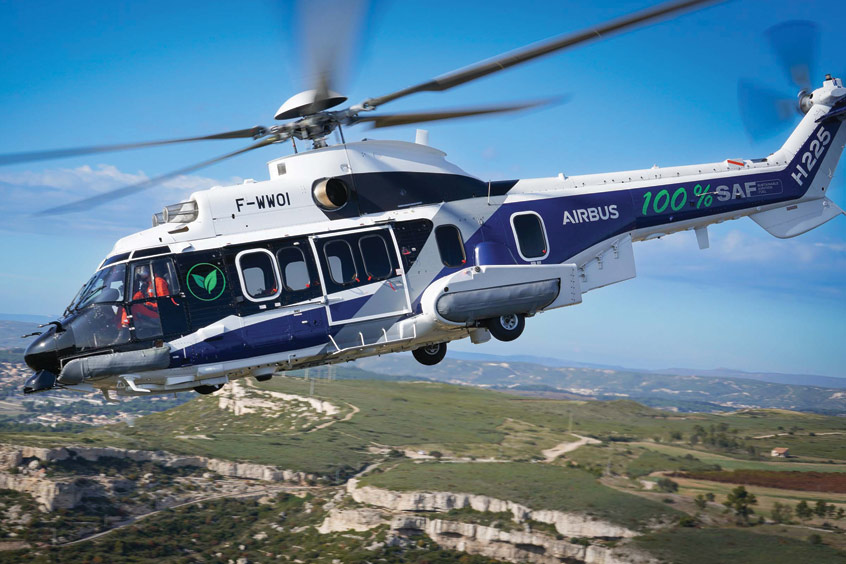ACE 2026 - The home of global charter.
• Airbus Helicopters
Aircraft
• Airbus Helicopters H215/H225/AS332
• Makila 2
BAN's World Gazetteer
• France The bimonthly news publication for aviation professionals.
The bimonthly news publication for aviation professionals.

An Airbus H225 has performed the first ever helicopter flight with 100 per cent sustainable aviation fuel (SAF) powering one of its two Safran Makila 2 engines. The flight took place at Airbus Helicopters' headquarters in Marignane, France and marks the start of a flight campaign aiming to assess the impact of unblended SAF on helicopter systems, with a view to certifying the use of SAF blends that exceed today's 50 per cent limit.
“While all Airbus Helicopters are certified to fly with up to a 50 per cent blend of SAF mixed with kerosene, it is our company's ambition to have its helicopters certified to fly with 100 per cent SAF within the decade. Today's flight is an important first step towards this goal,” says executive vice president, engineering and CTO Stefan Thome.
The flight campaign, which follows earlier unblended SAF bench tests performed by Safran Helicopter Engines at its Bordes plant in France, will provide further understanding of the technical challenges associated with the use of 100 per cent SAF. The H225 test helicopter flew with an unblended SAF derived from used cooking oil provided by TotalEnergies; it offers a net 90 per cent CO2 reduction compared to regular jet fuel.
“SAF is an important pillar of Airbus Helicopters' decarbonisation strategy because it provides immediate CO2 reduction with no negative impact on the performance of the helicopter,” adds Thome. “I thank our partners Safran Helicopter Engines and TotalEnergies for their important collaboration in making today's flight a reality. Further cooperation among all industry stakeholders is essential to overcome the challenges associated with implementing SAF widely and to make real progress in reducing the aviation industry's CO2 emissions.”
In order to drive the deployment of biofuels, Airbus Helicopters has launched a SAF user group dedicated to the rotary-wing community. The company has also started using SAF for training and test flights at its French and German sites.